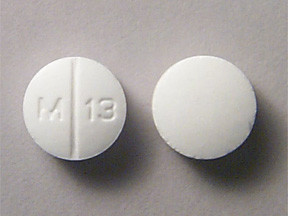TOLBUTAMIDE - ORAL
PHONETIC PRONUNCIATION: (tol-BUE-ta-mide)
COMMON BRAND NAME(S): Orinase
GENERIC NAME(S): tolbutamide
Uses
USES: Tolbutamide is used with a proper diet and exercise program to control high blood sugar in people with type 2 diabetes. It may also be used with other diabetes medications. Controlling high blood sugar helps prevent kidney damage, blindness, nerve problems, loss of limbs, and sexual function problems. Proper control of diabetes may also lessen your risk of a heart attack or stroke. Tolbutamide belongs to the class of drugs known as sulfonylureas. It works by causing the release of your body's natural insulin and may help to restore your body's proper response to insulin.
How to use TOLBUTAMIDE - ORAL
HOW TO USE: Take this medication by mouth as directed by your doctor, usually once daily in the morning. Your daily dose may also be divided into smaller doses to be taken several times a day, especially if this medication causes stomach upset. Follow your doctor's instructions carefully. The dosage is based on your medical condition and response to treatment. To reduce your risk of side effects, your doctor may direct you to start this medication at a low dose and gradually increase your dose. Follow your doctor's instructions carefully. If you are already taking another diabetes drug (such as chlorpropamide), follow your doctor's directions carefully for stopping the old drug and starting tolbutamide. Use this medication regularly to get the most benefit from it. To help you remember, take it at the same time(s) each day. Tell your doctor if your condition does not improve or if it worsens (your blood sugar is too high or too low).
Side Effects
Precautions
Interactions
Overdose
Images
Reviews
Faq for TOLBUTAMIDE - ORAL
Tolbutamide is an oral medication belonging to the class of drugs known as sulfonylureas. It is primarily used to treat type 2 diabetes by helping to control blood sugar levels.
Tolbutamide works by stimulating the pancreas to release more insulin, which helps to lower blood sugar levels. It also helps the body to use insulin more efficiently.
Common side effects of Tolbutamide include nausea, vomiting, stomach upset, headache, dizziness, or weight gain. Make sure to inform your doctor if any of these side effects persist or worsen.
Tolbutamide is usually taken once or twice daily with meals. The dosage will be determined by your doctor based on your individual condition. It is important to follow your doctor's instructions and take the medication as directed.
Tolbutamide is not typically prescribed for children. It is primarily used in adults for the treatment of type 2 diabetes.
Drinking alcohol while taking Tolbutamide can increase the risk of low blood sugar levels. It is advisable to limit or avoid alcohol consumption when using this medication.
Tolbutamide can interact with various medications, including certain antibiotics, antifungal drugs, blood thinners, and medications for high blood pressure or heart conditions. Inform your doctor about all the medications you are currently taking to avoid potential interactions.
If you miss a dose, take it as soon as you remember. However, if it is close to the time for your next dose, skip the missed dose and resume your regular dosing schedule. Do not take a double dose to catch up.
It is important to discuss with your doctor if you are pregnant, planning to become pregnant, or breastfeeding before taking Tolbutamide. The potential risks and benefits should be evaluated by a healthcare professional.
Disclaimer
IMPORTANT: HOW TO USE THIS INFORMATION: This is a summary and does NOT have all possible information about this product. This information does not assure that this product is safe, effective, or appropriate for you. This information is not individual medical advice and does not substitute for the advice of your health care professional. Always ask your health care professional for complete information about this product and your specific health needs.

No Reviews Yet